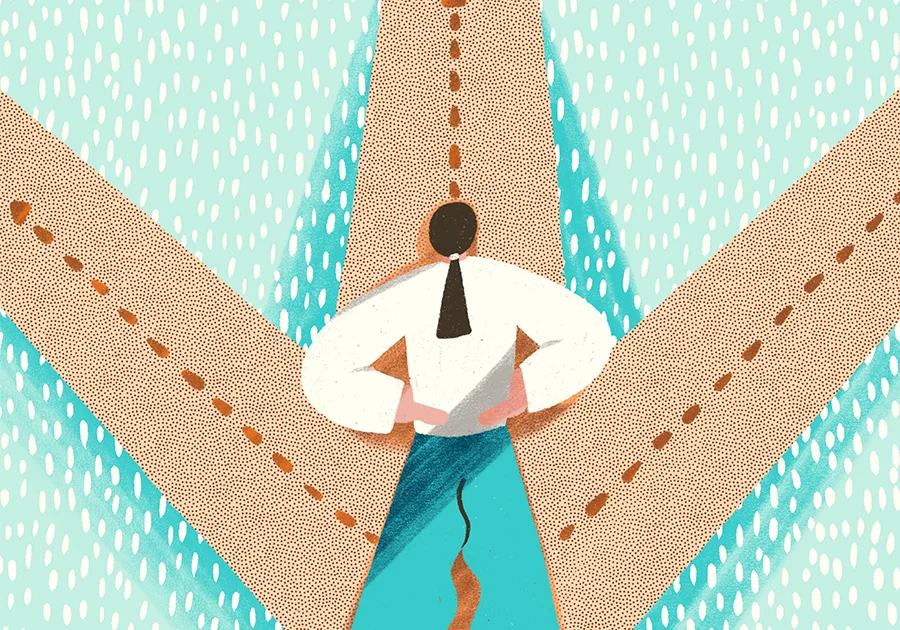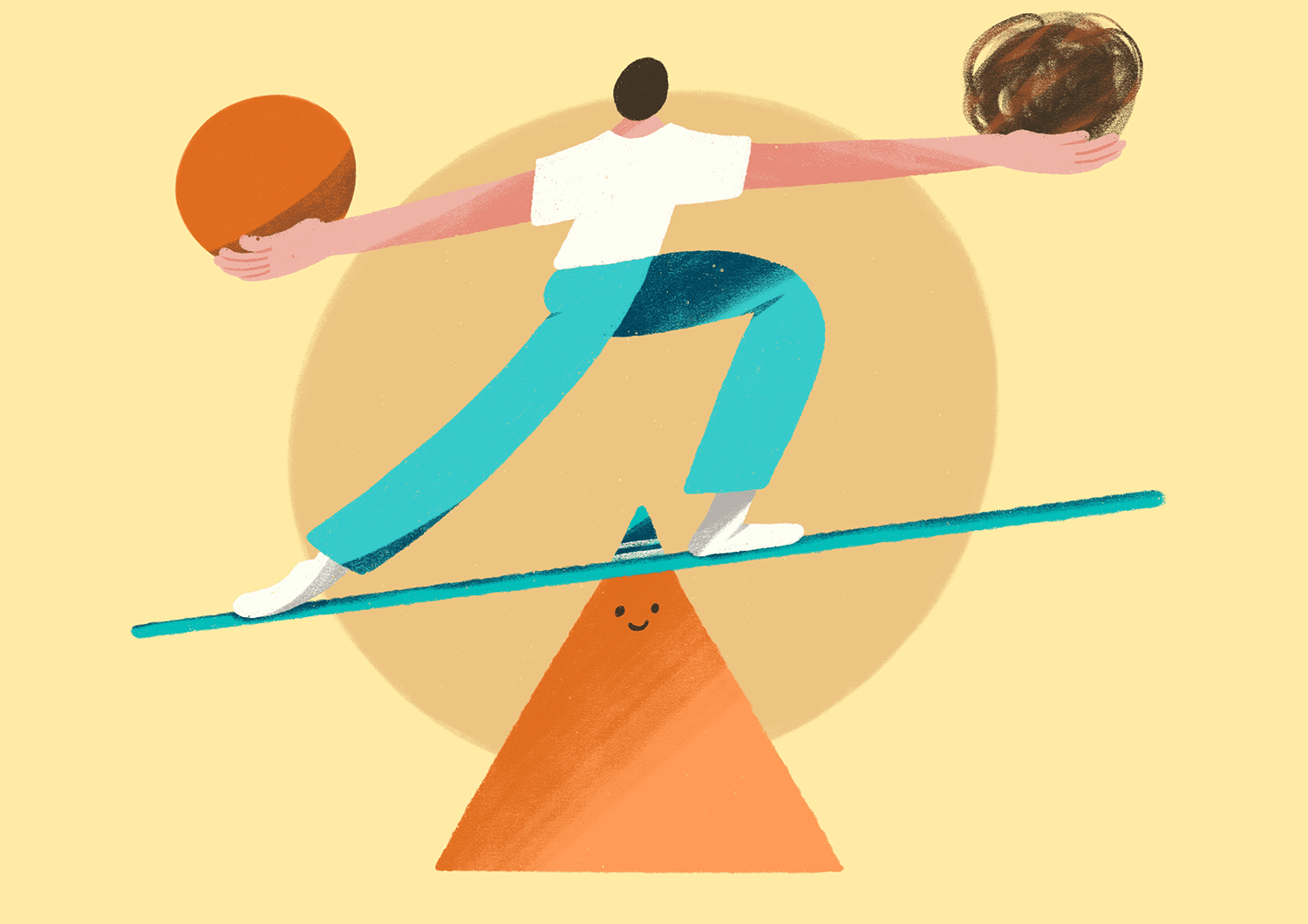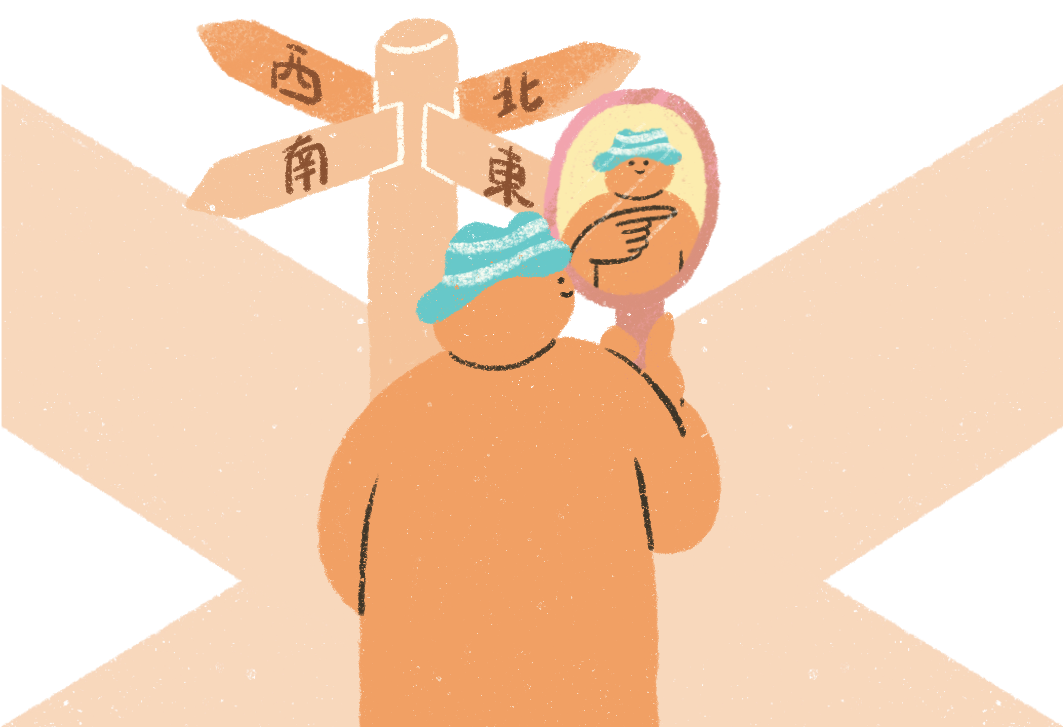This is a famous experiment about decision.
At a tasting booth in a California supermarket, customers were offered different flavors of jam to sample. The experiment varied the number of flavors available, alternating between 6 or 24 options. The results showed that the more flavors offered, the lower the purchase rate. 30% of customers who tried 6 flavors ended up making a purchase, compared to only 3% of those who tried 24 flavors.
Why does abundance of choice sometimes hold us back?
Is more always merrier when it comes to options, or is there a sweet spot?

Treating life as an adventure, we inevitably face big and small decisions along the way - from the trivial (coffee or tea for breakfast?) to the significant (which university program to pursue, where to settle down). Research indicates the average adult makes 33,000 to 35,000 decisions per day, most subconsciously. Clearly, "kids make choices, adults don't" is a myth - our lives are a constant stream of decision-making.
Having the freedom and ability to choose is a privilege. But when we're in a perpetual state of decision-making, depleting our physical, mental and emotional resources without adequate time to recharge, we become vulnerable to decision fatigue.
Common Signs of Decision Fatigue
We're surrounded by an endless stream of decisions every day, so how can you tell if you're truly suffering from decision fatigue? You can assess it from behavioral, cognitive, and physiological perspectives.
Behavioral signs of decision fatigue
- Avoidance and passivity: as one's internal resources like executive function, emotional regulation, and willpower become depleted, people may unconsciously change their behavior to avoid further ego depletion. This can take the form of procrastination, defaulting to preset options or even not taking any actions, rather than actively weighing the alternatives.
- Impulsivity: conversely, decision-makers may at times become more impulsive, with the emotional burden of decision-making responsibilities feeling intensified.
Cognitive signs of decision fatigue
- Decline in executive function and logical reasoning abilities: Studies indicate that university students experiencing decision fatigue tend to take more time to complete exams, yet perform less well compared to their peers not affected by decision fatigue.
- The cognitive shortcuts: decision makers may be more inclined to rely on cognitive heuristics, making choices based on past experiences rather than in-depth analysis. Research has shown that as the number of professional analyses produced by analysts increases, their forecasting accuracy can decline, and they become more reliant on past experience-based decision-making rather than rigorous deliberation.
Physiological signs of decision fatigue
- Decline in physical endurance: participants who have made a series of consumer decisions or course selection decisions have shown a greater decline in physical endurance during a cold pressor test (putting the hand in ice water), compared to participants who did not have to make such decisions.

Decision Fatigue and Default Options
Decision fatigue can significantly impact consumer decisions and marketing strategies. Studies have found that car buyers, when faced with a series of decisions such as interior color, transmission type, and wheel design, start off carefully considering each option. However, as the number of decisions increases, they become more likely to opt for the default options.
Furthermore, the complexity of the initial choices plays a role. When customers are presented with a larger set of options to choose from (e.g., 56 different colors), they tend to experience fatigue more quickly and are more inclined to select the default option.
Researchers suggest that businesses can strategically arrange the order in which customers make their choices, placing options with more variety earlier in the process and simpler choices later. This can potentially lead customers to select default options more quickly, thereby influencing product design and pricing.
Additionally, time of day appears to be a key factor in the occurrence of decision fatigue. A 2011 study tracking judges found that prisoners who were seen in the morning had a much higher chance of being granted parole compared to those seen in the afternoon, even when the crimes and sentences were the same. The researchers attributed this to judges becoming more inclined to choose the more safe option by the afternoon, as a result of decision fatigue.
When is Decision Fatigue More Likely to Occur?
Decision fatigue can affect anyone at various stages, but some individuals may be more prone to experiencing it, according to therapists:
- High-decision occupations: professions that require making a large number of decisions daily, such as judges, referees, and doctors, are more susceptible to decision fatigue. In fact, every occupation involves element of decision-making. As the complexity and difficulty of the decisions increase, the decision-makers become more prone to experiencing decision fatigue
- Decisions impacting others' well-being: when the decisions made have a direct impact on the well-being of others
- Dealing with challenging situations: individuals experiencing difficult life events, such as the loss of a spouse, may need to make numerous decisions
- Facing uncertain situations: when faced with unfamiliar situations where the implications of choices are not well-understood
- Perfectionist tendencies

How to Avoid Decision Fatigue?
- Reduce the number of daily decisions you need to make. Spread out your to-do items across different days rather than tackling them all in one day.
- Imagine the decision is someone else's, then consider how it impacts you. This can help you maintain objectivity and rationality.
- Remind yourself that not all choices are equally important. Take it easy on minor decisions, and focus your energy on the more significant ones. For example, Facebook founder Mark Zuckerberg and former US President Obama wear the same outfit daily to save decision-making effort and free up mental space for other critical choices. Learn to be more relaxed about small matters and listen to your inner voice.
- If appropriate, delegate decision-making authority to others. Or seek input from others to get diverse perspectives before deciding.
- Try writing it down. Jotting down your thoughts and weighing the pros and cons can help you make a more balanced decision and feel more confident about it.
- Aim to have sufficient sleep before making major decisions. You can also replenish your glucose levels by snacking before or during prolonged work/decision-making sessions. Low blood sugar can lead to impulsive decisions.
- If time allows, reserve some space and time to fully understand your own thoughts, weigh the trade-offs, and avoid hasty decisions.
Life is a ceaseless journey of choices, each decision etching its mark upon the rings of our personal growth. By listening closely to the whispers of our inner selves, we can uncover the choices most aligned with our true nature. And in doing so, every passing moment becomes a chance to begin anew.
References:
Iyengar, S. S., & Lepper, M. R. (2000). When choice is demotivating: Can one desire too much of a good thing? Journal of Personality and Social Psychology, 79(6), 995–1006. https://doi.org/10.1037/0022-3514.79.6.995
Pignatiello, G. A., Martin, R. J., & Hickman, R. L., Jr (2020). Decision fatigue: A conceptual analysis. Journal of Health Psychology, 25(1), 123–135. https://doi.org/10.1177/1359105318763510
Danziger, S., Levav, J., & Avnaim-Pesso, L. (2011). Extraneous factors in judicial decisions. Proceedings of the National Academy of Sciences of the United States of America, 108(17), 6889–6892. https://doi.org/10.1073/pnas.1018033108
Pulford, B. D., Colman, A. M., Buabang, E. K., & Krockow, E. M. (2018). The persuasive power of knowledge: Testing the confidence heuristic. Journal of experimental psychology. General, 147(10), 1431–1444. https://doi.org/10.1037/xge0000471
Levi, Y., Hirshleifer, D., Teoh, S. H., & Lourie, B. (2018). Decision Fatigue and Heuristic Analyst Forecasts. https://doi.org/10.31234/osf.io/mwv3q
Beisswanger, A. H., Stone, E. R., Hupp, J. M., & Allgaier, L. (2003). Risk taking in relationships: Differences in deciding for oneself versus for a friend. Basic and Applied Social Psychology, 25(2), 121–135. https://doi.org/10.1207/S15324834BASP2502_3
Eva Krockow. (2023). Is Decision Fatigue Real? Psychology Today. Retrieved at https://www.psychologytoday.com/us/blog/stretching-theory/202309/is-decision-fatigue-real
Amanda Reill. (2023). A Simple Way to Make Better Decisions. Harvard Business Review. Retrieved at https://hbr.org/2023/12/a-simple-way-to-make-better-decisions
8 Signs of Decision Fatigue and How To Cope. Cleveland Clinic. Retrieved at https://health.clevelandclinic.org/decision-fatigue

